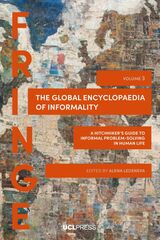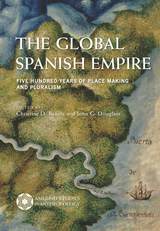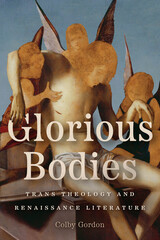160 books about Cultural assimilation and 5
start with L
160 books about Cultural assimilation and 5
160 books about Cultural assimilation
5 start with L start with L
5 start with L start with L
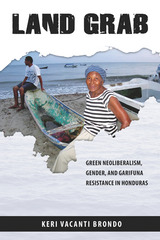
Land Grab
Green Neoliberalism, Gender, and Garifuna Resistance in Honduras
Keri Vacanti Brondo
University of Arizona Press, 2013
Land Grab is a rich ethnographic account of the relationship between identity politics, neoliberal development policy, and rights to resource management in Garifuna communities on the north coast of Honduras, before and after the 2009 coup d’état. The Garifuna are a people of African and Amerindian descent who were exiled to Honduras from the British colony of St. Vincent in 1797 and have long suffered from racial and cultural marginalization.
Employing approaches from feminist political ecology, critical race studies, and ethnic studies,Keri Vacanti Brondo illuminates three contemporary development paradoxes in Honduras: the recognition of the rights of indigenous people at the same time as Garifuna are being displaced in the name of development; the privileging of foreign research tourists in projects that promote ecotourism but result in restricting Garifuna from traditional livelihoods; and the contradictions in Garifuna land-rights claims based on native status when mestizos are reserving rights to resources as natives themselves.
Employing approaches from feminist political ecology, critical race studies, and ethnic studies,Keri Vacanti Brondo illuminates three contemporary development paradoxes in Honduras: the recognition of the rights of indigenous people at the same time as Garifuna are being displaced in the name of development; the privileging of foreign research tourists in projects that promote ecotourism but result in restricting Garifuna from traditional livelihoods; and the contradictions in Garifuna land-rights claims based on native status when mestizos are reserving rights to resources as natives themselves.
Brondo’s book asks a larger question: can “freedom,” understood as well-being, be achieved under the structures of neoliberalism? Grounding this question in the context of Garifuna relationships to territorial control and self-determination, the author explores the “reregulation” of Garifuna land; “neoliberal conservation” strategies like ecotourism, research tourism, and “voluntourism;” the significant issue of who controls access to property and natural resources; and the rights of women, who have been harshly impacted by “development.” In her conclusion, Brondo points to hopeful signs in the emergence of transnational indigenous, environmental, and feminist organizations.
[more]
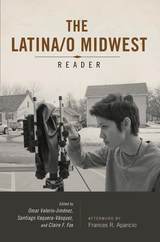
Latina/o Midwest Reader
Omar Valerio-Jimenez , Santiago Vaquera-Vasquez
University of Illinois Press, 2017
From 2000 to 2010, the Latino population increased by more than 73 percent across eight midwestern states. These interdisciplinary essays explore issues of history, education, literature, art, and politics defining today’s Latina/o Midwest. Some contributors delve into the Latina/o revitalization of rural areas, where communities have launched bold experiments in dual-language immersion education while seeing integrated neighborhoods, churches, and sports teams become the norm. Others reveal metro areas as laboratories for emerging Latino subjectivities, places where for some, the term Latina/o itself corresponds to a new type of lived identity as different Latina/o groups interact in shared neighborhoods, schools, and workplaces.
Eye-opening and provocative, The Latina/o Midwest Reader rewrites the conventional wisdom on today's Latina/o community and how it faces challenges—and thrives—in the heartland.
Contributors: Aidé Acosta, Frances R. Aparicio, Jay Arduser, Jane Blocker, Carolyn Colvin, María Eugenia Cotera, Theresa Delgadillo, Lilia Fernández, Claire F. Fox, Felipe Hinojosa, Michael D. Innis-Jiménez, José E. Limón, Marta María Maldonado, Louis G. Mendoza, Amelia María de la Luz Montes, Kim Potowski, Ramón H. Rivera-Servera, Rebecca M. Schreiber, Omar Valerio-Jiménez, Santiago Vaquera-Vásquez, Darrel Wanzer-Serrano, Janet Weaver, and Elizabeth Willmore
Eye-opening and provocative, The Latina/o Midwest Reader rewrites the conventional wisdom on today's Latina/o community and how it faces challenges—and thrives—in the heartland.
Contributors: Aidé Acosta, Frances R. Aparicio, Jay Arduser, Jane Blocker, Carolyn Colvin, María Eugenia Cotera, Theresa Delgadillo, Lilia Fernández, Claire F. Fox, Felipe Hinojosa, Michael D. Innis-Jiménez, José E. Limón, Marta María Maldonado, Louis G. Mendoza, Amelia María de la Luz Montes, Kim Potowski, Ramón H. Rivera-Servera, Rebecca M. Schreiber, Omar Valerio-Jiménez, Santiago Vaquera-Vásquez, Darrel Wanzer-Serrano, Janet Weaver, and Elizabeth Willmore
[more]
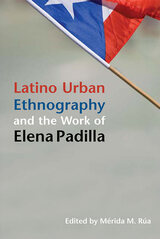
Latino Urban Ethnography and the Work of Elena Padilla
Merida M. Rua
University of Illinois Press, 2010
This study reclaims and builds upon the classic work of anthropologist Elena Padilla in an effort to examine constructions of space and identity among Latinos. The volume includes an annotated edition of Padilla's 1947 University of Chicago master's thesis, "Puerto Rican Immigrants in New York and Chicago: A Study in Comparative Assimilation," which broke with traditional urban ethnographies and examined racial identities and interethnic relations. Weighing the importance of gender and the interplay of labor, residence, and social networks, Padilla examined the integration of Puerto Rican migrants into the social and cultural life of the larger community where they settled. Also included are four comparative and interdisciplinary original essays that foreground the significance of Padilla's early study about Latinos in Chicago. Contributors discuss the implications of her groundbreaking contributions to urban ethnographic traditions and to the development of Puerto Rican studies and Latina/o studies.
Contributors are Nicholas De Genova, Zaire Z. Dinzey-Flores, Elena Padilla, Ana Y. Ramos-Zayas, Mérida M. Rúa, and Arlene Torres.
[more]
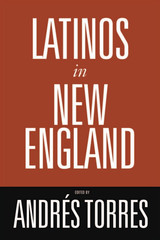
Latinos in New England
edited by Andrés Torres
Temple University Press, 2006
More than one million Latinos now live in New England. This is the first book to examine their impact on the region's culture, politics, and economics. At the same time, it investigates the effects of the locale on Latino residents' lives, traditions, and institutions.Employing methodologies from a variety of disciplines, twenty-one contributors explore topics in three broad areas: demographic trends, migration and community formation, and identity and politics. They utilize a wide range of approaches, including oral histories, case studies, ethnographic inquiries, focus group research, surveys, and statistical analyses. From the "Dominicanization" of the Latino community in Waterbury, Connecticut, to the immigration experiences of Brazilians in Massachusetts, from the influence of Latino Catholics on New England's Catholic churches to the growth of a Latino community in Providence, Rhode Island, the essays included here contribute to a new and multifaceted view of the growing Pan-Latino presence in the birthplace of the United States.
[more]

Lowrider Space
Aesthetics and Politics of Mexican American Custom Cars
By Ben Chappell
University of Texas Press, 2012
Aren’t lowriders always gangbangers? And, don’t they always hold high status in their neighborhoods? Contrary to both stereotypes, the people who build and drive lowrider cars perform diverse roles while mobilizing a distinctive aesthetic that is sometimes an act of resistance and sometimes of belonging. A fresh application of critical ethnographic methods, Lowrider Space looks beyond media portrayals, high-profile show cars, and famous cruising scenes to bring readers a realistic tour of the “ordinary” lowriders who turn streetscapes into stages on which dynamic identities can be performed.Drawing on firsthand participation in everyday practices of car clubs and cruising in Austin, Texas, Ben Chappell challenges histories of erasure, containment, and class immobility to emphasize the politics of presence evidenced in lowrider custom car style. Sketching out a partially personal map of the lowrider presence in Texas’s capital city, Chappell also explores the interior and exterior adornment of the cars (including the use of images of women’s bodies) and the intersecting production of personal and social space. As he moves through a second-hand economy to procure parts necessary for his own lowrider vehicle, on “service sector” wages, themes of materiality and physical labor intersect with questions of identity, ultimately demonstrating how spaces get made in the process of customizing one’s self.
[more]
READERS
Browse our collection.
PUBLISHERS
See BiblioVault's publisher services.
STUDENT SERVICES
Files for college accessibility offices.
UChicago Accessibility Resources
home | accessibility | search | about | contact us
BiblioVault ® 2001 - 2024
The University of Chicago Press



